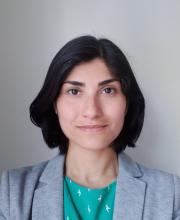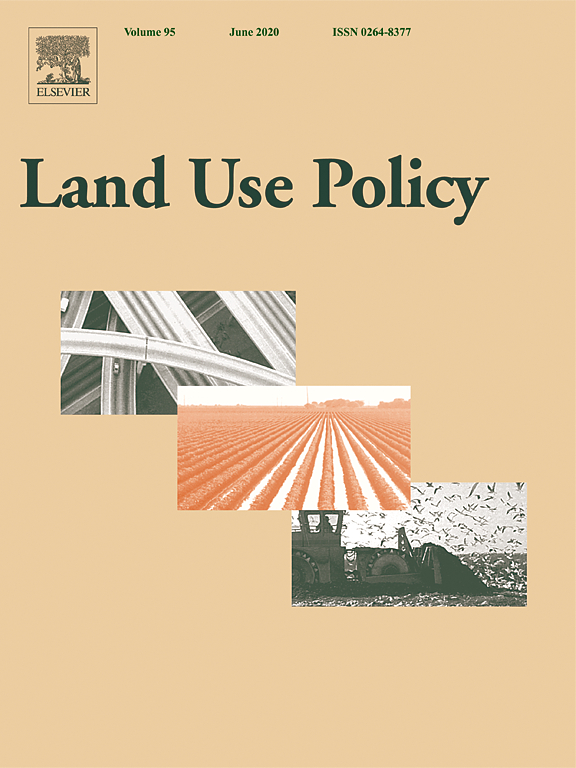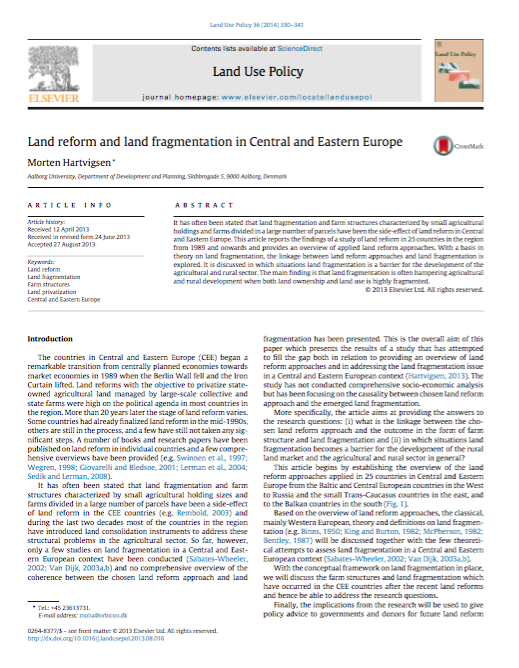
Topics and Regions
Romy leads the development of Land Portal's Country and Thematic portfolios, as well as the curation and ingestion of land-related publications and statistical datasets.
She is a communications specialist and policy advisor/project manager with more than 20 years of experience. She has worked previously with Embrapa (Brazil), CIFOR, FAO, GIZ, amongst other organizations on topics such as community forest management, payments for environmental services and agriculture & food security policy.
For the last 10 years her work has focused on land governance while as a project manager. In 2015 she supported the Global Donor Working Group on Land to advocate and secure SDG indicator 1.4.2 on land tenure security.
Romy holds a BA in Journalism from the Federal University of Pará, Brazil, and an Master of Science in Environmental Governance from the University of Freiburg, Germany.
Details
Affiliation:
Location
Contributions
Displaying 121 - 129 of 129Development of a land consolidation instrument in the Republic of Azerbaijan
The Republic of Azerbaijan implemented during the late 1990s a land reform, which distributed the state owned agricultural land to the rural population but also led to excessive land fragmentation and small farm sizes. Agricultural and rural development is high on the political agenda in Azerbaijan and is seen as an important sector to development as part of an overall strategy of reducing dependency on income from oil production.
FAO recommendations on land consolidation legislation
Most countries in Western Europe have a long tradition for implementing land consolidation projects. In Central and Eastern Europe, land reforms from 1990 on in most countries resulted in farm structures characterized by excessive land fragmentation and small average farm sizes. Most CEE countries have introduced land consolidation instruments to address the structural problems. FAO has from 2000 on supported land consolidation in the region.
Land Consolidation and Land Readjustment for Sustainable Development – the Issues to be Addressed
From 9 to 11 November 2016 the ‘symposium on land consolidation and land readjustment for sustainable development’ was held in Apeldoorn, the Netherlands. The symposium was a joint initiative from FIG commissions 7 and 8, the Food and Agriculture Organization of the United Nations (FAO), LANDNET, the Dutch Cadastre, Land Registry and Mapping Agency, and supported by Global Land Tool Network (GLTN) and the World Bank. About 200 participants from 50 countries shared their experiences and knowledge about state of the art practices of land consolidation and land readjustment across the world.
Land Use Policy
Land Use Policy is an international and interdisciplinary journal concerned with the social, economic, political, legal, physical and planning aspects of urban and rural land use. It provides a forum for the exchange of ideas and information from the diverse range of disciplines and interest groups which must be combined to formulate effective land use policies.
Land reform and land fragmentation in Central and Eastern Europe
It has often been stated that land fragmentation and farm structures characterized by small agricultural holdings and farms divided in a large number of parcels have been the side-effect of land reform in Central and Eastern Europe. This article reports the findings of a study of land reform in 25 countries in the region from 1989 and onwards and provides an overview of applied land reform approaches. With a basis in theory on land fragmentation, the linkage between land reform approaches and land fragmentation is explored.
Land governance for development in Central and Eastern Europe: Land fragmentation and land consolidation as part of Sustainable Development Goals
Most transition countries in Central and Eastern Europe (CEE) face enormous challenges in developing a viable land structure, requiring a set of measures which is unprecedented in its scale and intensity to speed up this process. Analysis of policy initiatives in CEE countries illustrates that options for solving fragmentation and small scale of farms have concentrated on particular instruments like land consolidation and land banking.
Sierra Leone Network on the Right to Food
The Sierra Leone Network on the Right to Food (SiLNoRF) was established in 2008 as an African civil society mechanism to work exclusively on right to food issues. It was created just after the establishment of the African Network on the Right to Food (ANoRF) in Cotonou in 2008. Following the Cotonou declaration of ANoRF, several Civil Society Organisations, NGOs, CBOs working in the areas of Human Rights Advocacy became members of SiLNoRF.
Network Movement for Justice and Development
The Network Movement for Justice and Development (NMJD) is a national human rights-oriented civil society development and advocacy organization that was established in Kenema, eastern Sierra Leone in 1988. It engages in advocacy and strengthens/enhances the capacity of civil society organizations to effectively engage women, men, children, communities, government and other actors for the transformation of society.
More Data - Better Governance of Land Tenure?
In the last five years, significant steps have been taken to put land tenure security as a priority in global policy frameworks, but also in implementation plans. A side event at CFS45, organised by the Global Donor Working Group on Land with other key players, took stock of progress.










